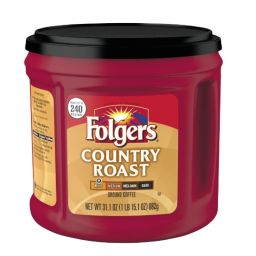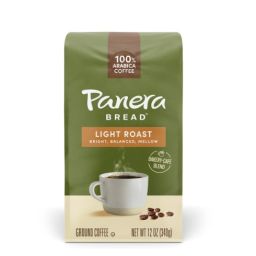
Powdered milk, also known as dried milk, is a versatile staple that offers a convenient and long-lasting alternative to fresh milk. Created by evaporating milk to dryness, it provides a unique solution for coffee lovers. Its ease of storage and preparation makes it a popular choice for enhancing the creamy texture of coffee without the need for refrigeration. Whether you’re at home or on the go, powdered milk can be quickly reconstituted with water and added directly to your coffee, delivering a consistent taste and creamy texture that rivals fresh milk.
Key Takeaways about Best Powdered Milk For Coffee
- Long Shelf Life: Powdered milk can be stored for months or even years without spoiling, making it a reliable pantry staple.
- Convenience: Easily storable and quick to prepare, it simplifies the coffee-making process, especially when fresh milk isn’t on hand.
- Cost-effective: Generally cheaper over time compared to buying fresh milk, especially if you don’t frequently use milk.
- Versatility: Suitable for various coffee preparations, it can be used in machines, French presses, or even mixed directly into brewed coffee.
Comparison with Other Creamers
Compared to liquid milk and non-dairy creamers, powdered milk offers several health benefits as it typically contains fewer additives and can be a healthier option with essential nutrients like calcium and protein retained. In terms of taste, it provides a subtler flavor enhancement, avoiding the often overly-sweet and artificial flavors found in some creamers.
The texture of reconstituted powdered milk is remarkably close to that of fresh milk, making it a satisfactory alternative for most coffee drinkers seeking a creamy consistency.
Top Recommended Brands
When choosing the best powdered milk for coffee, the flavor, nutritional content, and ease of use are key factors to consider. Here are some top brands that stand out in the market:
Nestle Nido Milk Powder
Nestle Nido is a full cream milk powder that enriches your coffee with a creamy texture and a rich flavor. It is well-loved for its high calcium and protein content, making it a nutritious addition to your morning routine. Nido blends smoothly into both hot and cold coffee, ensuring a uniform consistency without clumps. Its versatility extends beyond coffee, as it can also be used in baking and cooking, proving itself as a pantry essential.
Carnation Instant Nonfat Dry Milk
For those who prefer a lighter option, Carnation Instant Nonfat Dry Milk is an excellent choice. This brand is noted for its ease of mixing and a slightly sweet taste that complements the robust flavors of coffee without overpowering them.
Carnation is fortified with vitamins A and D, boosting the nutritional value of your beverage. Its fine texture dissolves quickly and evenly, making it perfect for use in coffee machines and manual brewing alike.
Hoosier Hill Farm All American Whole Milk Powder
Hoosier Hill Farm offers an all-American, whole milk powder that’s ideal for those looking for a taste closest to fresh milk. It is rich in both flavor and nutrients, providing a comforting, creamy addition to your coffee. This powder mixes well and is especially suitable for adding directly to hot coffee or incorporating into espresso-based drinks, where it enhances the body and richness of the beverage.
Z Natural Foods Coconut Milk Powder
For a non-dairy alternative, Z Natural Foods Coconut Milk Powder is a standout. It is a fantastic option for vegans or those with lactose intolerance. This coconut milk powder adds a light, tropical flavor to coffee that can be a delightful change from traditional milk flavors. It’s also packed with healthy fats that can provide a sustained energy boost throughout the day.
Despite its slightly different flavor profile, it mixes easily and can be used in a variety of coffee types, from simple brewed coffee to more elaborate lattes.
Meyenberg Whole Powdered Goat Milk
Meyenberg’s Whole Powdered Goat Milk is unique for its distinct flavor, which is richer and slightly sweeter than cow’s milk. It’s a good source of calcium, potassium, and phosphorous. While it may not be everyone’s first choice for coffee due to its characteristic taste, it offers a creamy texture that blends well and can be a delightful alternative for those looking to try something different.
Preparation Techniques
Mixing powdered milk into your coffee might sound straightforward, but there are nuances depending on the brewing method and coffee machine you use. Here’s a practical guide to getting the best flavor and texture from your powdered milk across various coffee-making techniques:
For Automatic Drip Coffee Makers
- Mix with Grounds: You can add powdered milk directly to the coffee grounds in the filter basket. Start with about one teaspoon per cup of coffee and adjust according to taste. This method integrates the milk powder during the brewing process, infusing the coffee with a creamy texture as it brews.
- Pre-dissolve in Water: Alternatively, dissolve the powdered milk in the water you’ll use for brewing. Use hot water to ensure it dissolves completely before adding it to your coffee maker. This creates a uniformly creamy cup of coffee.
For Single-Serve Coffee Machines (e.g., Keurig)
- Add to Mug: Place a teaspoon of powdered milk directly into your mug before brewing. When the hot coffee dispenses, it will mix with the powder. Stir well to ensure it’s fully dissolved.
- Experiment with Amounts: Depending on your preference for creaminess, you may want to add more or less powdered milk. Start with a small amount and increase incrementally to find your perfect mix.
For Espresso Machines
- Mix into Milk Reservoir: If your machine has a milk steaming feature, you can mix powdered milk with water in the milk reservoir. Ensure it’s fully dissolved to avoid clogging the machine.
- Steam Separately: For a more hands-on approach, dissolve powdered milk in a small amount of hot water and use the steam wand to froth it as you would with regular milk. This method allows you to create a rich, creamy froth for cappuccinos and lattes.
For French Press
- Add After Brewing: Brew your coffee as usual in the French press. Once brewed, add powdered milk directly to the brewed coffee and stir thoroughly. The heat of the coffee will help dissolve the powder without clumps.
- Control the Creaminess: Adjust the amount of powdered milk to match the strength of the coffee and your taste preference. More powder results in a creamier, richer texture.
For Pour-Over Methods
- Mix with Grounds: Similar to the drip coffee maker method, you can add powdered milk to the coffee grounds before pouring hot water over them. This allows the milk powder to integrate as the coffee is brewed.
- Dissolve in Serving Cup: As a simpler alternative, place the desired amount of powdered milk in the serving cup and pour the brewed coffee over it, stirring well.
Tips for Best Results
- Always start with less powdered milk and add more as needed, as it’s easier to increase creaminess than to dilute it if it’s too strong.
- Use hot water to dissolve powdered milk if you’re mixing it separately from the coffee to avoid lumps.
- For a smoother texture, consider using a fine sieve or a blender to break down clumps before adding the milk powder to your coffee.
FAQs
What are the benefits of powdered milk over fresh milk?
Powdered milk offers several advantages over fresh milk, particularly in terms of storage and convenience. It has a much longer shelf life, often lasting months or even years without refrigeration, which reduces waste and provides a reliable milk supply. Additionally, powdered milk is easier to store and transport, making it ideal for travel or situations where space is limited.
How should I store powdered milk for the best longevity?
To keep powdered milk fresh and effective, store it in a cool, dry place away from direct sunlight. Use an airtight container to protect it from moisture and odors. Properly stored, powdered milk can last well beyond its best-by date without losing its flavor or nutritional value.
Any tips for enhancing the flavor of coffee using powdered milk?
To enhance your coffee with powdered milk, start by using a high-quality milk powder known for its creaminess and flavor. Dissolve the milk powder in a small amount of hot water before adding it to your coffee to prevent clumps and ensure a smooth texture. You can also experiment with adding spices like cinnamon or nutmeg to the milk mixture to add a subtle flavor twist to your coffee.
Final Thoughts
Using the right powdered milk can significantly enhance your coffee experience by adding creaminess and a touch of sweetness without the hassle of fresh milk. When selecting powdered milk for coffee, consider factors like flavor profile, nutritional content, and ease of use. Brands that offer a good balance of taste and solubility typically provide the best results in coffee.









